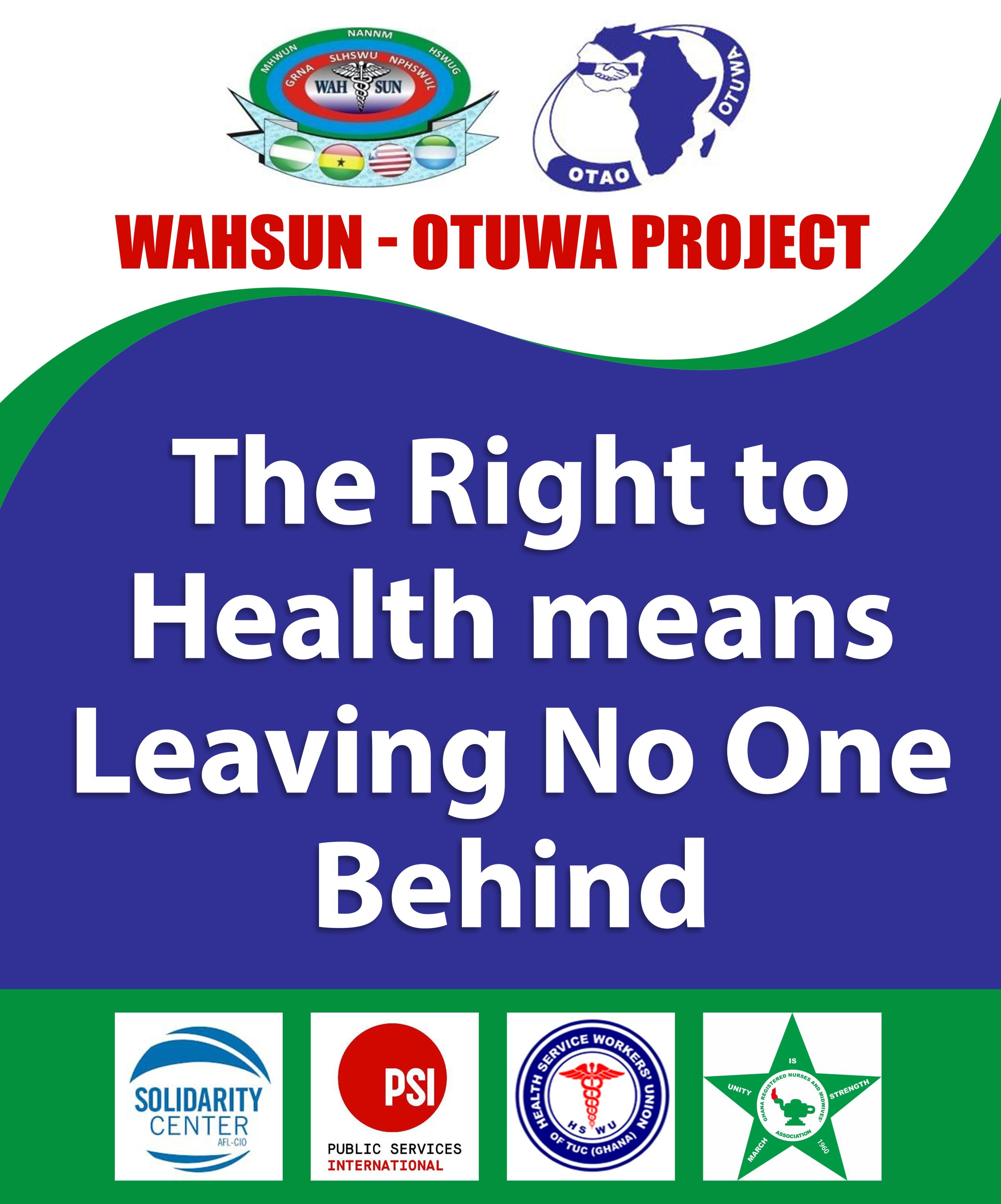There have been serious gaps in terms of healthcare for workers in the informal sector in six West African States, a study has shown. The studies conducted in 2020 and 2021 in the wake of Covid-19 spanned Nigeria, Ghana, Togo, Sierra Leone, Niger and Liberia.
Executive Secretary of Organization of Trade Unions of West Africa (OTUWA), Comrade John Odah disclosed this yesterday in Abuja in a message of solidarity to the Opening Session of the 24th Plenary of the West African Health Sector Unions Network (WAHSUN), saying it was on the basis of the study that OTUWA embarked on a campaign across the subregion for increased budgetary allocation to health to and including workers in the informal sector.
The study consisted of two successive surveys on “the impact of COVID-19 on Health workers in six West African Countries” in October 2020 and “Accessibility of Healthcare for workers in the informal sector in six West African States” in June 2021 respectively. OTUWA has already expanded its campaign to include the West Africa Health Sector Union Network, Public Service International (PSI) as well as health unions in the six participating countries In the third phase of the activities. “This time, the campaign is addressing issues of poor funding of the health sector, poor healthcare infrastructure and medical equipment, shortage of medical personnel, inequality in wages and insufficient social protection coverage for health workers,” said Comrade Odah.
Now in its fourth phase, the campaign has further expanded to adding among the list of partners civil society organizations working in the area of health. “We have in the 4th year of the campaign also sought to do training on how democracy can best serve the cause of the people of the subregion in delivering on the promise of improved healthcare provisions”, Odah added, declaring how much OTUWA cherishes its partnership with the WAHSUN and the wish to consolidate the relationship. Speaking to the pattern, Odah connected that to OTUWA’s need for the expertise of the unions in the health sector across the subregion, particularly in its work with ECOWAS and its agency, the West Africa Health Organization (WAHO).
OTUWA is already involved at a pan African and global level with the leadership of several continental platforms in an initiative called the Global African Workers Institute (GAWI). He said it is an organization with trade unionists of African Heritage across the Americas, Europe, the Caribbean, Asia and other parts of the globe seeking to promote the interest of workers of African descent around the globe. One of its standing committees is the health committee in which Nigeria’s Baba Aye sits on. Odah expressed the hope that the WAHSUN leadership would, in due course, explore participating in this initiative.
He implored comrade participants from other countries to impress it upon their host Medical and Health Workers Union of Nigeria to take them to the site where the union is in an advanced stage of the construction of their own hospital facility in Abuja. For Odah, such would be part of experience sharing that comrade who came from other countries could take away in relation to improving on service delivery to their members.
Expressing appreciation to the organizers for extending invitation to OTUWA to address the Opening Session, the OTUWA Executive Secretary called the 24th Plenary Session of WAHSUN a case of home coming to the city of its birth, “as your organization was born in this city in November 2007-some seventeen years ago”. There is need to commend the wisdom of the founders of this Network as it is a great experiment in building solidary and experience sharing, argues Odah, noting what he described as the progressive expansion of the Network from its modest beginning as an English-speaking countries formation to cover the other countries of the subregion.
Odah isolated the theme of the meeting – “Quality Public Health Services: A vision for West Africa Health Sector Unions,” – saying there is great expectation that its outcome would point a way forward in getting public health services out of its state of neglect and underfunding.
Comrade Baba Aye, the Health and Social Service Sector Officer of the Public Services International declared in the Keynote Address that there is a burgeoning sense of renewed resistance to commodification and marketisation of health and care. Universal access to quality public healthcare is necessary to achieve universal healthcare, he said, but argues that this requires embracing the vision at the heart of the formation of WAHSUN 20 years back with tenacity. A lot, he said, had been done in forging solidarity between WAHSUN member organisations.




























